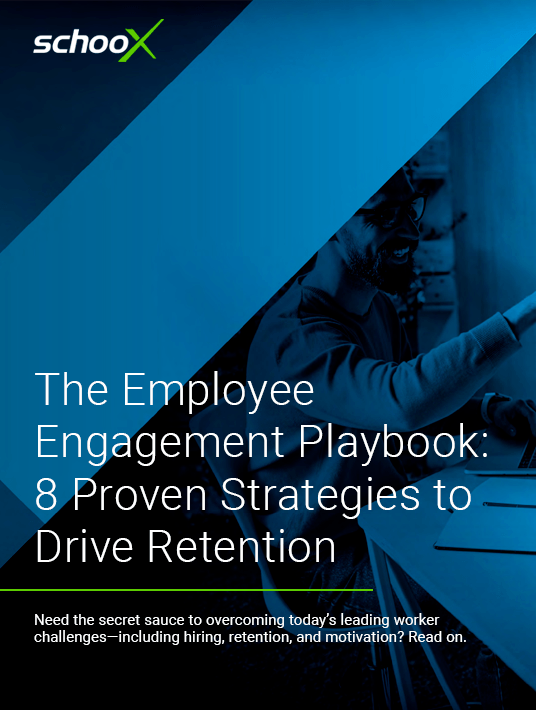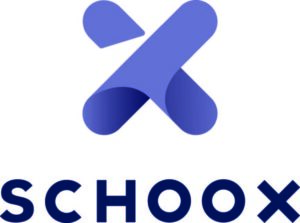Why L&D Is Important For Talent Development
If you asked any HR leader about employee recruitment, retention, and motivation before the COVID-19 pandemic, they were likely to say it’s an ongoing struggle with many wins along the way. Ask them now, post-pandemic and post-Great-Resignation, and they are likely to say they are facing a crisis with few wins.
Before 2020, most HR teams had a relatively easy time filling job openings with multiple potential employees applying for nearly every position. Today, open positions often remain unfilled for extended periods—even indefinitely.
In light of this reality, the business world is seeking concrete solutions to overcome the problem of not being able to fill job openings. Employers are considering everything from nontraditional sources of recruiting (high-schoolers, veterans, people from other countries, to name a few) to pampering employees with gourmet dining services and wellness programs.
While many of the ideas are not yet proven, there is one workplace program that is set up to be a change agent for three common challenges—recruitment, retention, and motivation. That solution is continuous employee learning.

Why Invest In Employee Learning?
Robust learning programs have been shown to have a direct impact on employee job satisfaction—and that directly impacts recruitment, retention, and motivation. Employees are attracted to companies that care enough about their workers to give them the knowledge and tools they need to perform their jobs well and to advance their careers. Workers who are happy with their jobs tend to stay and are more motivated.
The first question many organizations ask when considering a Learning Management System (LMS) is cost. They want to know the bottom line. But what is often left out of the conversation is what they stand to gain by deploying the right LMS. After all, what amount of revenue is lost when an organization cannot recruit enough workers to fill their job openings? What’s the cost of turnover when workers quit? And what is the price of having unmotivated employees performing jobs they don’t like? Simply stated, these costs are high.
Consider these stats:
- U.S. annual voluntary job turnover is likely to jump nearly 20% in 2022—with 37.4 million quitting their jobs vs. 31.9 million pre-pandemic [1]
- There were nearly 11.5 million unfilled U.S. job openings in the first quarter of 2022 [2]
- The U.S. saw its first annual engaged worker decline in a decade—dropping from 36% in 2020 to 34% in 2021 [3]
41% of enterprise employees have left or would consider leaving their job due to poor collaboration, and 64% claim that poor collaboration is costing them at least 3 hours per week in productivity, with 20% claiming they are wasting as many as 6 hours per week. [4]
While this all sounds dire, there are proactive steps organizations can take to turn things around. Deploying a high-impact learning program is at the top of the list. Actually, a Gallup report on the ongoing U.S. employee engagement slump found that consistently upskilling managers to coach employees on their strengths helps support employee job engagement. [3] And that’s just one example!
The Upside Of Upskilling And Reskilling
Speaking of upskilling (along with its counterpart, reskilling) these two learning initiatives not only help address job gaps and foster talent development, but also have become another aspect of employee learning expectations. In fact, 48% of American workers would switch to a new job if offered skills training opportunities. [5]
Over 39% of Learning and Development (L&D) professionals in the U.S. identified upskilling and reskilling as their top priorities, according to the LinkedIn 2022 Workplace Learning Report. [6] Proving that this is not exactly a new problem, an earlier report, The Upskilling Crisis, found that 56% of HR professionals and U.S. employees described their organization’s skills gap as moderate to severe. [7]
The impetus for reskilling workers is equally critical. In early 2020, the World Economic Forum sounded an alarm by announcing: “The world is facing a reskilling emergency. We need to reskill more than 1 billion people by 2030.” [8]
L&D programs can be an appealing employee benefit. In fact, skills training is one of the top perks younger workers look for in a new job—66% of workers ages 18 to 24 ranked learning new skills as the third-most important perk when evaluating new job opportunities—behind only health insurance and disability benefits. [5]
Offer Employees More Opportunities For Growth
The message is clear—or should be by now. Employees need more learning opportunities to accept jobs, to stay with their companies, and to remain motivated to perform at their optimum capacity while on the job. If employers want these outcomes, they should consider deploying an LMS that will support these goals.
Here are three critical ways that an LMS can positively impact your organization’s employee crisis:
1. Attract More Talent And Fill Job Vacancies
A robust learning program communicates to job candidates that you are serious about employee training and development. To leverage this opportunity, include a description of your learning program in your job ads. Let job seekers know that learning is central to the commitment to your employees. Also, make it a point of conversation during job interviews.
2. Develop Your Employees Through Your LMS
The onboarding process will show new hires right away that your learning program delivers on its promises. They also gain insight about the ongoing opportunities for learning, upskilling, and reskilling available to them—from short-term job skills to a long-term career path.
3. Improve Retention And Lower Turnover
At some point in their careers, employees may begin to wonder “why should I stay at my job?” Access to a learning program that gives them multiple opportunities for training, learning, upskilling, reskilling, and advancing their career is a benefit not all companies offer, making your company more attractive to potential candidates. Even better is having an LMS that includes opportunities for connection, community, and friendly competition among their peers. These features expand employees’ feelings of connectedness with the company and their place in the organization. In this way, a rich and rewarding learning program becomes a competitive advantage.
Download the eBook The Employee Engagement Playbook: 8 Proven Strategies To Drive Retention to discover how to leverage technology to hire, retain, and inspire top talent. It features insider tips to make your existing employee development program more collaborative, learner-centered, and results-driven.
References:
[2] Total Unfilled Job Vacancies for the United States
[3] U.S. Employee Engagement Slump Continues
[4] Global Survey: 41% of Employees Considering Leaving Job Due to Inadequate Collaboration Tools
[5] The American Upskilling Study: Empowering Workers for the Jobs of Tomorrow
[7] The Upskilling Crisis: The Benefits of Enabling and Retraining Employees for the Future
[8] Superlearning: Reskilling, upskilling and outskilling for a future-proof workforce










